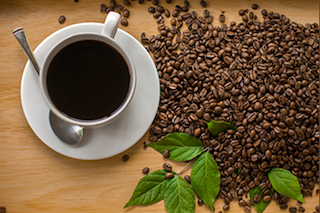5 tips for a healthy Ramadan fast
March 15, 2024

North Texas is home to a large Muslim population, and our primary care team guides many of these patients in their health and wellness journeys. During Ramadan, the most sacred month of the year for Muslims, a strict “dry” fast – no food or drink – is observed during daylight hours.
Many of our patients, particularly those with chronic health conditions, ask for safe fasting strategies. For patients with high blood pressure, high cholesterol, or hypothyroidism, it is generally safe to revise your medication schedule during Ramadan. This may mean taking medications with your early or late meal or waking earlier to take them on an empty stomach.
Patients with complex health conditions such as cancer, diabetes, kidney disease, or pregnancy and breastfeeding should discuss medications and nutrition with their specialist. Sometimes the safest option is to not participate in the fast or modify your diet or medications to maintain hydration and blood sugar levels. This is permissible in the Muslim faith, and leaders agree that it is best to honor your body’s limits – gratitude, not self-endangerment, is the reason for the fast.
Related reading: Demystifying women’s health in the Muslim community
Tips for a healthy fast
1. Restructure your days
In the weeks leading up to Ramadan, shift your wake-up time a bit earlier each day. This allows you to have sufficient time for Suhoor, the pre-dawn meal, and to take any necessary medications. By adjusting your mornings, you can ease into the fasting routine without feeling rushed or stressed. I recommend patients break their fast at Iftaar, the post-sunset meal, with a piece of fruit (such as a date) and some water. Once your body knows it’s time to eat again, it’s easier to do so mindfully and resist the urge to overindulge later. Incorporate protein-rich foods such as oatmeal, yogurt, beans, and hummus to sustain energy levels throughout the day. Eat plenty of protein during your early meal to improve satiety throughout the day.

2. Taper off caffeine
Gradually reduce caffeinated beverages as you prepare or progress through Ramadan. Caffeine withdrawal symptoms like headache, fatigue, and irritability can be disruptive. Some patients take acetaminophen or ibuprofen upon waking or sip tea or coffee at the evening meal. Caffeine is also a natural diuretic, so if you choose to continue to drink it in the predawn meal, ensure you are drinking a lot of water.
3. Prioritize hydration
Dehydration is one of the most common challenges during the Ramadan fast, particularly for individuals who are physically active like athletes or those with hypertension. Breastfeeding mothers also experience this regularly, so it is important to have adequate hydration to maintain the breast milk supply.
Drink plenty of water with your morning and evening meals and add water-containing produce, such as watermelon and cucumber. If you get dehydrated easily, add electrolytes to your water – you can make your own by adding a splash of orange juice and a pinch of salt to coconut water.

4. Exercise strategically
Plan your exercise routine around meal times to replenish energy stores promptly after working out. When you finish your workout, hydrate first. Listen to your body’s signals – if you experience dizziness or fatigue, you may need to adjust your exercise schedule accordingly or even break your fast.
5. Moderate your food celebrations
Breaking the fast in the evening with family is a wonderful tradition, but when celebrations featuring festive foods happen nearly every night, calories add up quickly. Indulging excessively in high-calorie or high-sugar foods can disrupt your fasting goals and lead to unwanted weight gain. This is particularly important for those who have diabetes.
Fasting can take many forms
Be prepared to engage in discussions with family members who may hold different views on fasting practices. Communicate openly about your intentions to observe Ramadan while prioritizing your health and well-being.
For example, you and your doctor may decide that you need to consume food or water during the day or take medications on your regular schedule. Children, pregnant and breastfeeding individuals, and people with complex conditions are permitted to not participate in the fast.
Modifying your medications or intake to accommodate your needs is a legitimate and sustainable approach. By incorporating these strategies into your Ramadan routine, you can promote both physical and spiritual well-being while observing this holy month.
To talk with a primary care doctor, call 214-645-8300 or request an appointment online.











